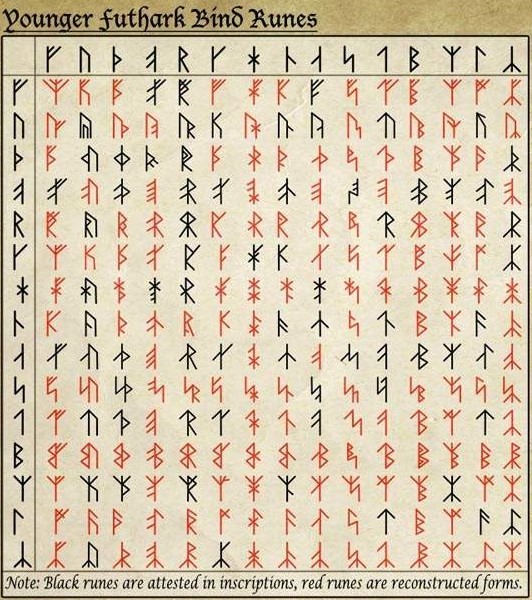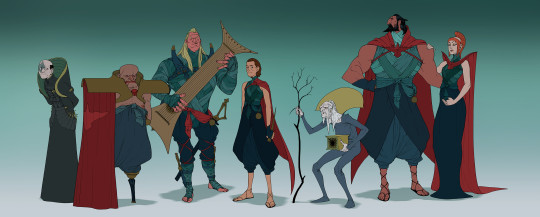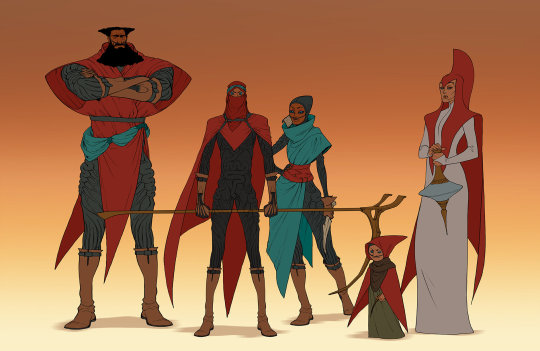Text
ᚼᚢᛅᛏ ᛘᚬᛚᛏᛁ ᚢᚦᛁᚾ
ᛅᚦᚱ ᚬ ᛒᛅᛚ ᛋᛏᛁᚴᛁ
ᛋᛁᛅᛚᚠᛦ ᛁ ᛅᚢᛦᛅ ᛋᚢᚾᛁ
Hvat mælti Óðinn,
áðr á bál stigi,
sjálfr, í eyra syni?
What did Óðinn say,
before he stepped onto the pyre,
himself, into his son’s ear?
Vafþrúðnismál 54
0 notes
Text
If Óðinn was human, he would be a scientist. He’d sacrifice everything to uncover the unknown of this universe. He does not appreciate the wilfully ignorant, those who light candles and pray for wisdom.
1 note
·
View note
Text

The Maidens’ War (Dívčí válka)
is a tale in Czech tradition about an uprising of women against men. According to legend, it took place sometime in the 8th century.
Summary
Following the death of Libuše, Vlasta led a band of women against the (male) forces of Libuše’s widower Přemysl and founded the castle Děvín. The men, however, despite the warnings of Duke Přemysl, laughed at their preparations. Vlasta then sent the most beautiful girls to enchant the men with their charms, and led an attack against the men who came to Děvín, which the women won.
Šárka, Vlasta’s lieutenant, entrapped a band of armed men led by Ctirad by tying herself to a tree, claiming that the rebel maidens had tied her there and put a horn and a jug of mead out of reach to mock her. Ctirad believed her story and untied her from the tree, whereupon she poured mead for the men to show her thanks. Little did the men know that Šárka and the maidens had put a sleeping potion into the mead. When all the men had fallen asleep, Šárka blew the horn as a signal for the rebel maidens to come out of their hiding places and join her in slaughtering the men. Ctirad was captured and then tortured to death in Děvín. The valley where it happened is today called Divoká Šárka (Wild Šárka).
When the men at Vyšehrad learned of this, they became angry and began to beat and capture women on the road. Vlasta responded with an attack at Vyšehrad, but she was killed and her army defeated. Děvín Castle was burned, and the women’s rule ended.
1 note
·
View note
Text

ᚠᚢᚦᚬᚱᚴᚼᚾᛁᛅᛋᛏᛒᛘᛚᛦ
4 notes
·
View notes
Text
“Apostles were basically wizards. Take Saint Andrew for example. Not only did he raise the dead, heal the blind, etc. he survived being placed among fierce animals, calmed storms, made entire armies drop dead just by crossing himself, and finally while crucified held a sermon for three days!”
— Renegade Hierophant
8 notes
·
View notes
Text
Branch Runes
Cipher:
left branches of the tree stand for the row
right branches of the tree stand for the column


#runes#runic#futhark#younger futhark#norse#norse paganism#heathen#heathenry#cryptography#calligraphy
45 notes
·
View notes
Text
ᛏᛅᚢᚦ᛬ᚢᛅᛦ᛬ᛁᚴ᛬ᛚᛁᚴᛁ
ᛑᛆᚢᚧ᛬ᚢᛆᚱ᛬ᛂᚴ᛬ᛚᛂᚶᛁ
dauð var ek lengi
long was I dead
4 notes
·
View notes
Photo



House Atreides, Giedi Prime, and Arrakis by Matt Rhodes
97 notes
·
View notes
Text
Cossack (козак), an Ukrainian word that comes from Old Turkic quzzāq meaning “free man” or “wanderer”.
Sich (січ) from the Ukrainian verb сікти “to cut”, alluding to an area that has been cleared for a camp, was an administrative centre of the Ukrainian Cossacks.
So free men living in siches. What does that remind me of? Hmmm…
14 notes
·
View notes
Text
The very rich are not good.
Plato, Laws, Book 5, 743c
6 notes
·
View notes
Text
So, I just learned that JRR Tolkien agreed with me that dwarves are Jewish. He based the dwarvish language in his books on Hebrew, and dwarvish culture on medieval jewish history.
This extends into the idea of the diaspora, as the dwarves in LOTR have been forced from their own kingdoms multiple times. He even explicitly said that the quest in the Hobbit was a metaphor for Zionism.
332 notes
·
View notes
Text
Socrates was punished for blasphemy not because he taught atheism, but because he taught the youth of Athens with the wisdom of his highest God, Apollo, and not Athena, the highest God of Athens.
9 notes
·
View notes
Text
Understanding ancient Greek philosophers becomes much easier once you realize that they considered theology and metaphysics to be synonyms.
4 notes
·
View notes


